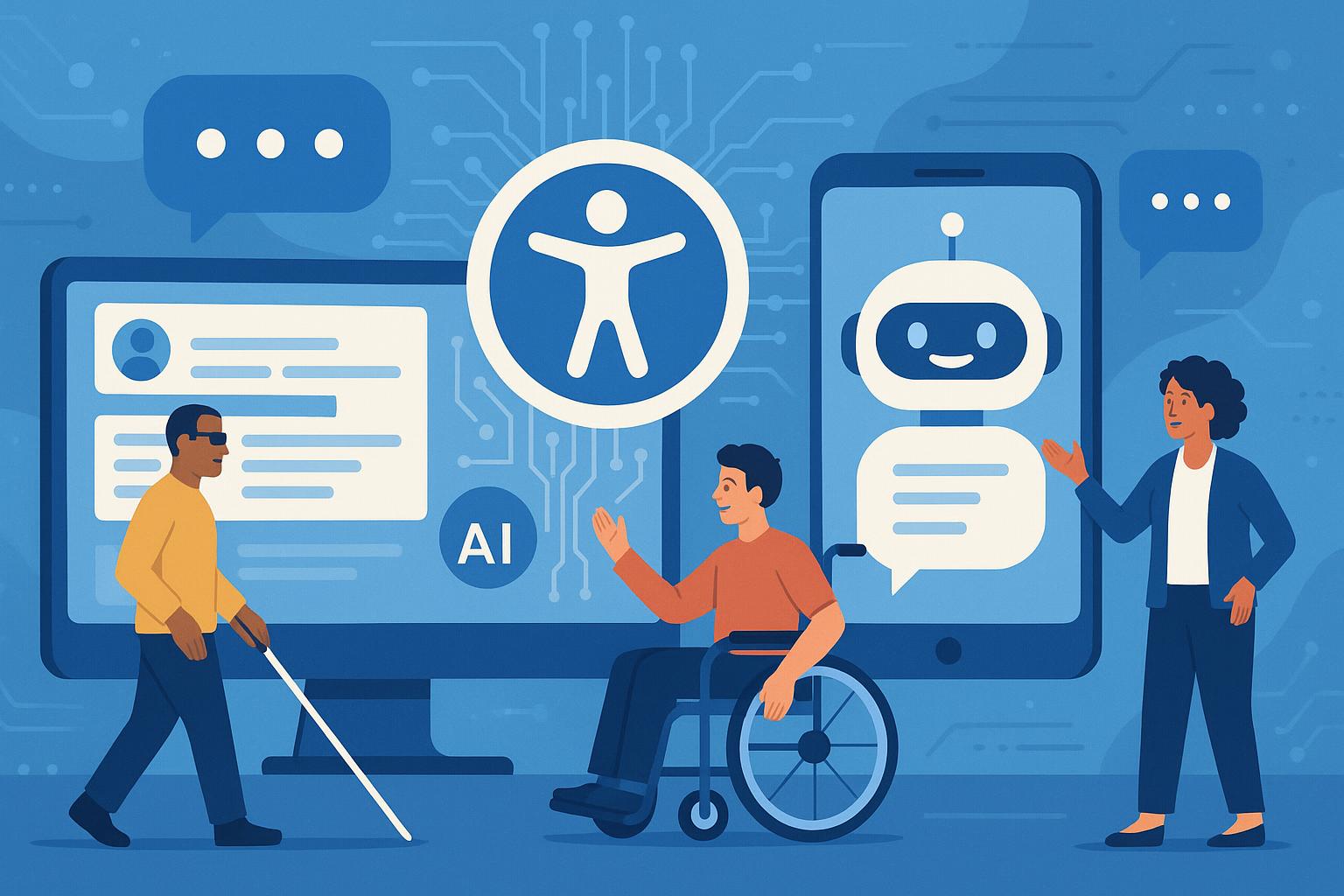The Future of AI in Accounting: Transforming the Industry with Chatbot UI/UX
The accounting industry, known for its meticulous attention to detail and significant data management, is undergoing a revolutionary transformation thanks to advancements in artificial intelligence (AI) and chatbot technologies. As we look into the future, the role of AI and chatbots in accounting is set to be pivotal, reshaping how professionals like Accountants, CPAs, Bookkeepers, Tax Advisors, and Auditors manage workflows, interact with clients, and make strategic decisions. This article explores the future landscape of AI in accounting, focusing on the development and optimization of Chatbot User Interface/User Experience (UI/UX).
Enhancing Client Interactions and Workflow Efficiency
The integration of chatbots in accounting practices is not just about automation; it's about enhancing the quality of interactions and the efficiency of processes. Chatbots equipped with advanced natural language processing capabilities can understand and respond to client inquiries with high accuracy, providing a seamless interaction that rivals human engagement.
- Real-time Data Access: Chatbots can fetch financial data instantly upon request, allowing accountants to provide timely advice based on the most current figures.
- Error Reduction: AI algorithms help minimize errors in data entry and financial reporting, enhancing compliance and accuracy.
- 24/7 Availability: Unlike human counterparts, chatbots can operate around the clock, offering constant support to clients and internal teams.
Integration with Existing Financial Software
One of the most significant advantages of AI-driven chatbots in accounting is their ability to integrate seamlessly with existing financial software. This integration allows for streamlined data flows and enhances the functionality of financial systems without the need for extensive overhauls. Chatbots can pull data from, and push data to, various accounting platforms, ensuring that all financial records are up-to-date and accurate.
For example, a chatbot integrated with software like QuickBooks or Xero can perform tasks ranging from simple data retrieval to complex predictive analytics, giving accountants a powerful tool to enhance decision-making processes.
Compliance with Financial Regulations
Compliance is a critical concern in the financial sector. AI-enhanced chatbots are designed to adhere to financial regulations and standards, ensuring that all transactions and reporting are compliant with governmental guidelines. By automating compliance checks, chatbots reduce the risk of human error and the potential for compliance-related issues.
Case Studies and Success Stories
Several firms have already seen significant improvements in workflow efficiency and client satisfaction by integrating AI chatbots into their operations. For instance, a mid-sized accounting firm in New York implemented a chatbot that handles all initial customer inquiries and appointment scheduling. This change allowed their staff to focus on more complex and strategic tasks, improving overall productivity and reducing operational costs.
Addressing Potential Challenges
Despite the benefits, the adoption of AI and chatbots in accounting does come with challenges. These include the need for ongoing training and updates, ensuring data security, and overcoming initial resistance to adopting new technologies.
- Data Security: Implementing robust security measures and encryption to protect sensitive financial data handled by chatbots.
- Training and Updates: Regularly updating the AI algorithms and training the chatbot with new data to handle evolving financial scenarios accurately.
- User Adoption: Encouraging staff and clients to embrace chatbot solutions through demonstrations and training on the benefits and ease of use.
Actionable Tips for Implementing Chatbot Technology
- Start with a pilot program to integrate chatbots in a controlled manner, monitoring performance and gathering user feedback.
- Ensure the chatbot design is user-friendly and intuitive, particularly for clients who may not be tech-savvy.
- Focus on data security from the outset, integrating best practices and compliance into the chatbot's operations.
- Regularly review and update the chatbot's responses and capabilities to align with current financial practices and regulations.
Conclusion
The future of AI in accounting is bright, with chatbots at the forefront of this technological revolution. By enhancing client interactions, integrating seamlessly with existing tools, and ensuring compliance, AI-driven chatbots are set to transform the accounting industry in unprecedented ways. For professionals in the field, staying abreast of these developments and understanding how to leverage them effectively will be key to maintaining a competitive edge in a rapidly evolving digital landscape.
As we continue to explore the role of digital transformation in accounting, it becomes clear that the optimization of Chatbot UI/UX will play a critical role in not only streamlining operations but also in enhancing the overall value provided to clients. The journey towards digital transformation is complex yet rewarding, with AI and chatbots leading the charge in innovation.















